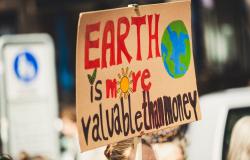
Does civil society in competitive authoritarian and authoritarian countries impact environmental policy? Specifically, does civil society speed up the ratification of international environmental treaties? Treaty ratification is a crucial step for translating international commitments to domestic politics. I argue that in competitive authoritarian regimes, where civil society operates under constraints but retains some space for advocacy, more robust civil society accelerates the ratification of environmental treaties compared to states with weaker civil society. These regimes often tolerate civil society pressure on non-threatening issues, such as environmental governance, which allows for strategic concessions without undermining state authority. Focusing on Southeast Asia, I conduct an event history analysis to understand how ratification timings of environmental treaties are affected by the participatory environments of civil society organizations. I use three measures of participatory environment: the level of control over civil society, the consultation status of civil society organizations, and the participation of women in civil society. I find that states with more robust civil society ratify environmental treaties faster compared to those with weaker civil society. This study challenges the assumption that authoritarian regimes uniformly ignore civil society and underscores the importance of strategic advocacy in advancing environmental governance.
Policy implications
- Policymakers in the Southeast Asia region should create formal and transparent mechanisms for CSOs to participate in policy discussions. This includes simplifying registration processes and promoting the inclusion of civil society actors in policy discussions, especially around environmental governance.
- CSOs should push for engagement with state actors, especially in formal institutions where they can demonstrate their knowledge in policy making and implementation at the grassroots level.
- CSOs should incorporate diverse voices in their decision-making positions, particularly women. This will enhance their legitimacy and promote coalition building across social groups.
- Civil society groups across Southeast Asia should invest in training their members to understand the nuances of international environmental agreements and policy frameworks. This will enable them to engage more effectively with state actors and international bodies, advocating for faster treaty ratification and implementation.
-
CSOs should continue raising awareness in the public on environmental issues. By building public support, CSOs can create additional pressure on governments to adopt environmental policies.
Photo by Markus Spiske